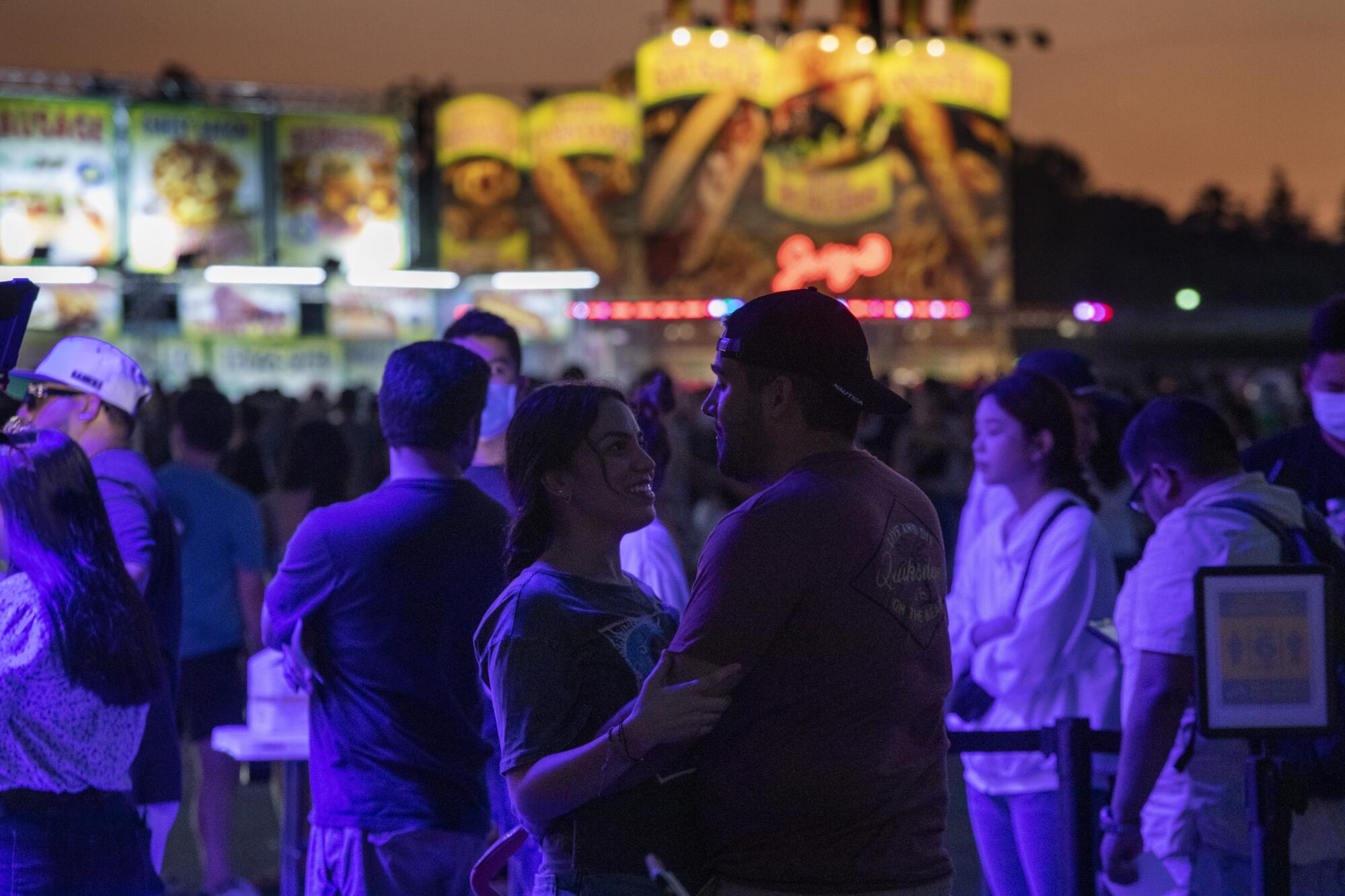
- Share via
The line for grilled pork skewers was 30 deep. Nearly as many were waiting for fried sushi on a stick.
Others elbowed their way through crowds, clutching boba slushies or ramen burgers, as Carly Rae Jepsen and Bruno Mars blared in the background.
It seemed like a normal night at the 626 Night Market, a summer extravaganza that draws foodies from around Southern California — or almost normal.
On opening night last Friday at Santa Anita Park in Arcadia, people wore masks here and there. Admission times were staggered, and the number of tickets was capped at about 70% of previous years. But the fare, ranging from the experimental to the traditional, was as varied as ever.
After skipping last year because of the COVID-19 pandemic, Asian night markets are starting to bounce back.
Inspired by tightly packed outdoor food markets in cities like Taipei, Bangkok and Hong Kong, their return is a sign, along with reopened bars and restaurants, that normal life is resuming, despite the rise of the Delta variant of the coronavirus.
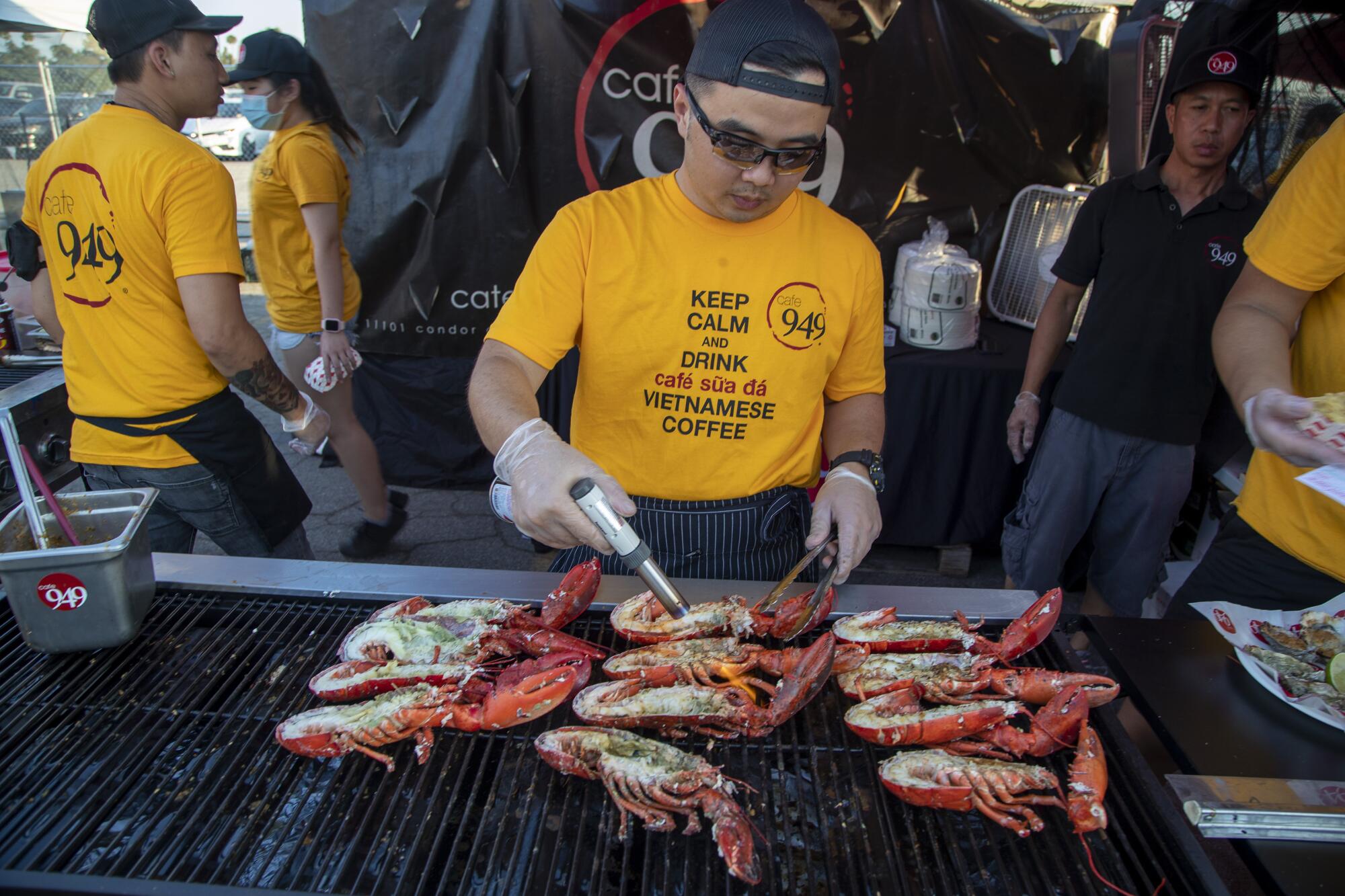
“I was very shocked. It’s just like a normal day, like COVID never happened,” said Young Chang, a 44-year-old owner of a popular ramen stall, on opening night at 626. “From the last event two years ago to now, we’re right back at it.”
Customers returning to 626 described feeling a mix of weirdness and normalcy — some angst at being in a crowd of unmasked strangers, coupled with the realization that this is how it’s supposed to be. Vendors are hopeful that cash will flow in and that Instagram photos of their creations will go viral.
Carter Roodman, an 18-year-old from Porter Ranch who will be a first-year student at the Otis College of Art and Design in Westchester, was sitting on a bench with his brother. He had enjoyed trying takoyaki — balls of fried dough mixed with octopus.
It felt “weird to be around like a billion people,” Roodman said. But it was also “refreshing.”
“It’s like when you’re sick, and your nose is stuffy, and then you’re not sick anymore, and then you breathe clearly,” he said.
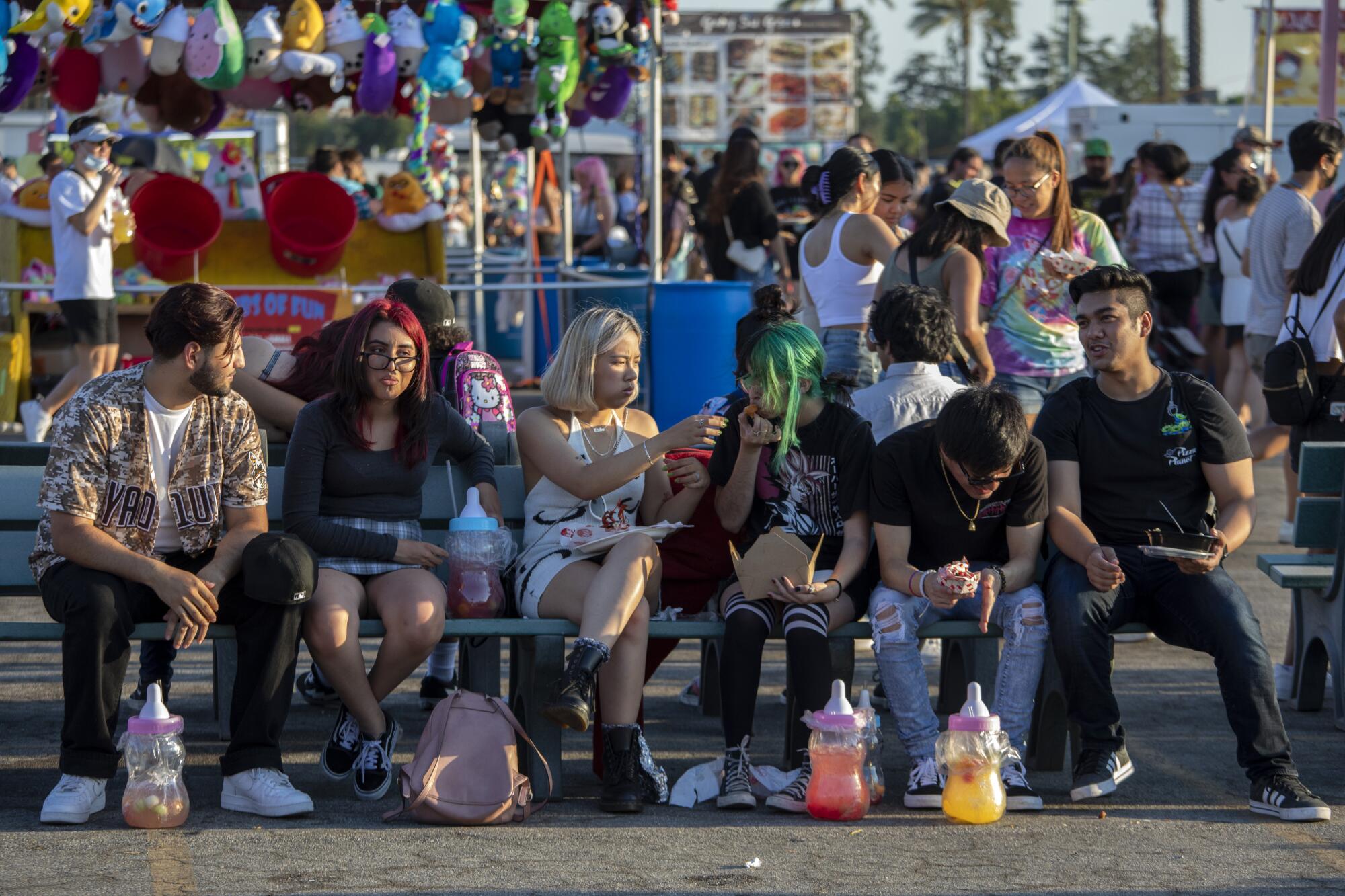
Founded in 2012 by Taiwanese American Jonny Hwang, 626 is the largest of Southern California’s Asian-focused night markets, with more than 200 vendors and attendance capped this year at 70,000 for each weekend. Night markets in Hollywood and Long Beach have not yet reopened, while one in Little Saigon is running every weekend through the summer.
Some Latino street markets, such as Avenue 26 in Lincoln Heights, have sprung up organically and continued to operate, even growing, during the pandemic. According to LA Taco, a market in Cudahy was recently shut down by Union Pacific Railroad, which owns the land where it had set up. Guatemalan-style tamales and tacos are among the offerings at a night market in Westlake.
The “626” is a reference to the area code for much of the San Gabriel Valley, where immigrants from Taiwan, China, Hong Kong and Vietnam have established a diverse and constantly evolving food scene. The market returns to Santa Anita Park this weekend before moving to Alameda County and Costa Mesa.
It is known as an incubator for local food entrepreneurs on the road to opening a food truck or restaurant, said Holly Nguyen, marketing manager for 626.
Many of the creative combinations at 626 are difficult to find elsewhere, leading to Instagrammable moments. That ramen burger? The bun is made of ramen, not bread. Boba comes in a colorful, lightbulb-shaped bag.
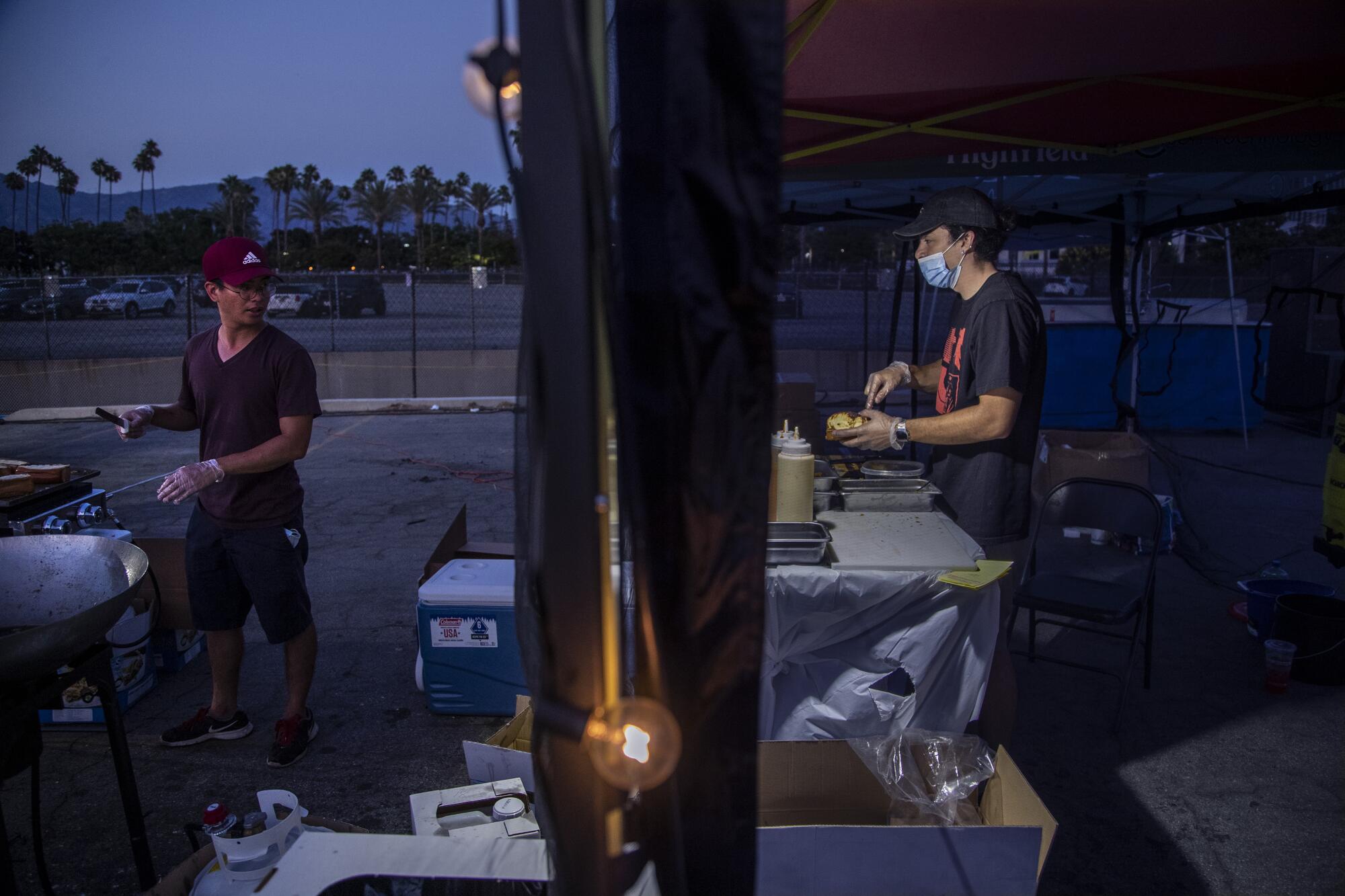
At 626, Ryan Leung plunged a strainer full of crab meat into a sizzling wok.
Leung, 29, who is from Hong Kong, worked on the 626 staff before opening his own stand. This was his second time at the market, selling soft-shell crab sandwiches and pork belly buns.
The 626 has been an affordable way for him to test his recipes and gain a following on Instagram before he fulfills his dream of opening a brick-and-mortar site in Pasadena.
When the pandemic forced the market to close, Leung was left in limbo. He tried to find work at various restaurants, but no one was hiring. To help pay the bills, he prepared meals for a family he knew.
“It was hard because it kind of stopped my career,” Leung said. “This is my steppingstone into owning a restaurant. So the pandemic put a pause on it. But I’m glad that everything’s back.”
During the pandemic, German Arteaga, who sells funnel cakes and grilled corn, saw event after event get canceled. For 17 months, he didn’t work, even as the bills kept coming.
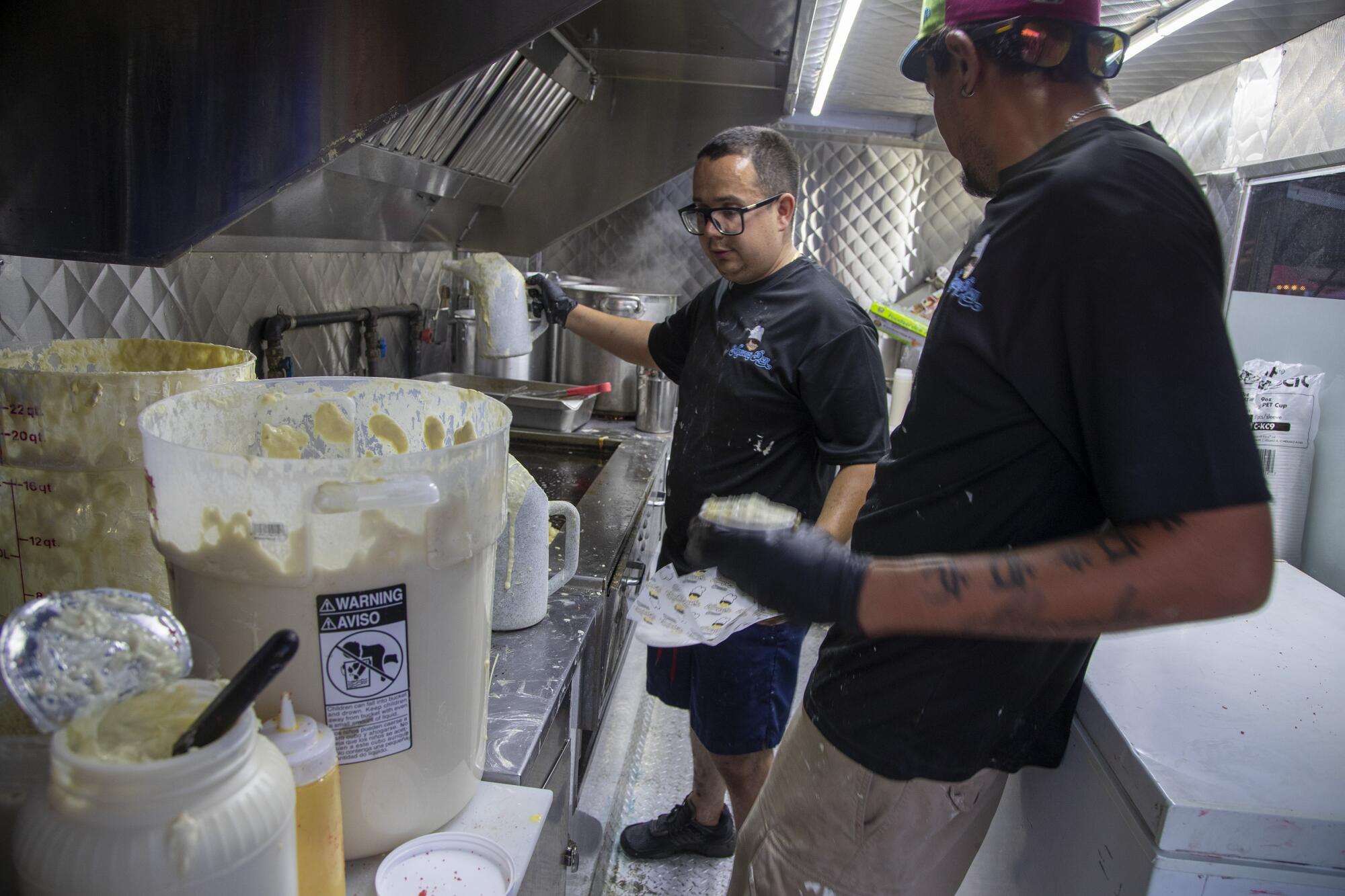
“Now, this event can help us put money back into our savings instead of just pulling from the savings,” he said.
Arteaga launched his shop, Mason’s Den, at the 626 market six years ago. He said returning to the market feels like coming home.
“No one believed in us, but 626 Night Market did, and it just blew up,” he said.
In Orange County, the Little Saigon market has a homegrown feel, with a few dozen vendors and mostly Vietnamese American customers.
It is nestled next to the Asian Garden Mall, a landmark Vietnamese-owned mall in Westminster. After reopening on June 18, the market is running every weekend until Sept. 5.
On a recent Saturday night, people chatted in Vietnamese as vendors grilled pork skewers.
Most stalls advertised their fare in Vietnamese, with no English signage: crab noodle soup, fried rice wraps, grilled pork chops. A band crooned Vietnamese songs while a few couples danced ballroom-style and other people munched on spring rolls, watching the dancers.
“It’s very weird to see people without masks, because that’s all I was used to for like the last year and a half,” said Kevin Thanh, 20, a senior at UC Riverside.
Thanh and his friend, Kien Le, were driving by when they smelled the food and pulled over. Both were wearing masks as they wandered through the market.
“Before, with all those restrictions, you couldn’t be six feet apart. And all those mom-and-pop businesses were dying,” said Le, 23, a student from Irvine. “It’s nice seeing those back again.”
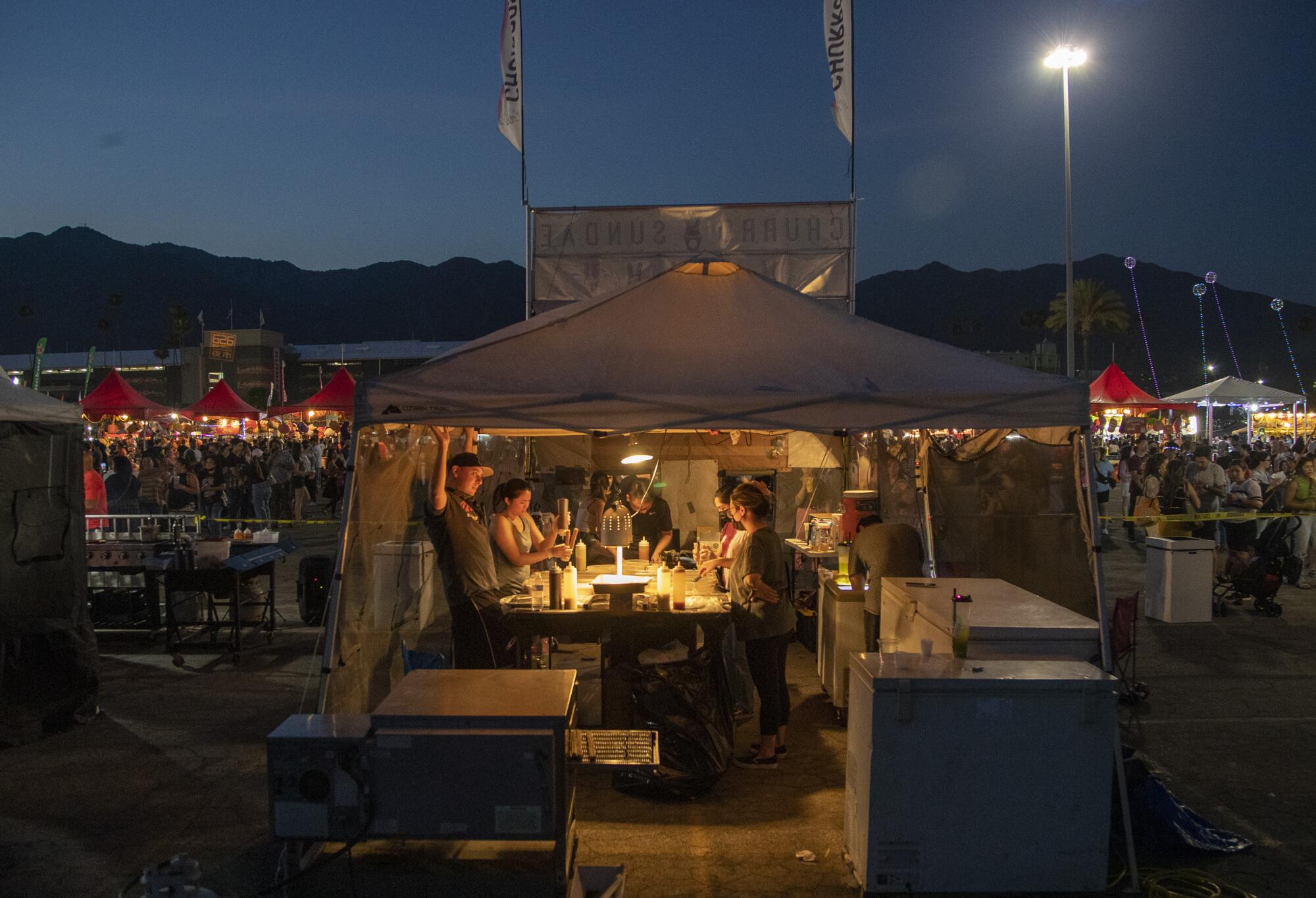
The market is a gathering place for Vietnamese Americans in the area, according to Lyna Le, who organized the market in 2011 on behalf of the Asian Garden Mall’s owner, Frank Jao.
“It’s always a thrill to see people run into other people that they haven’t seen in a long time,” Le said. “There are little mini-reunions out there.”
Many vendors rely on this night market as their primary source of income, Le said. With the low overhead, they can make a quick profit here rather than opening a restaurant.
Sheila Cheung, 54, was selling dried squid, popcorn chicken and fried potatoes on skewers. She moved from Vietnam to the U.S. in 1979 and has had a stand at the market for seven years.
After her gift shop closed during the pandemic, the market became her only source of income.
She has a simple word to describe her feelings about being back: “Joy.”
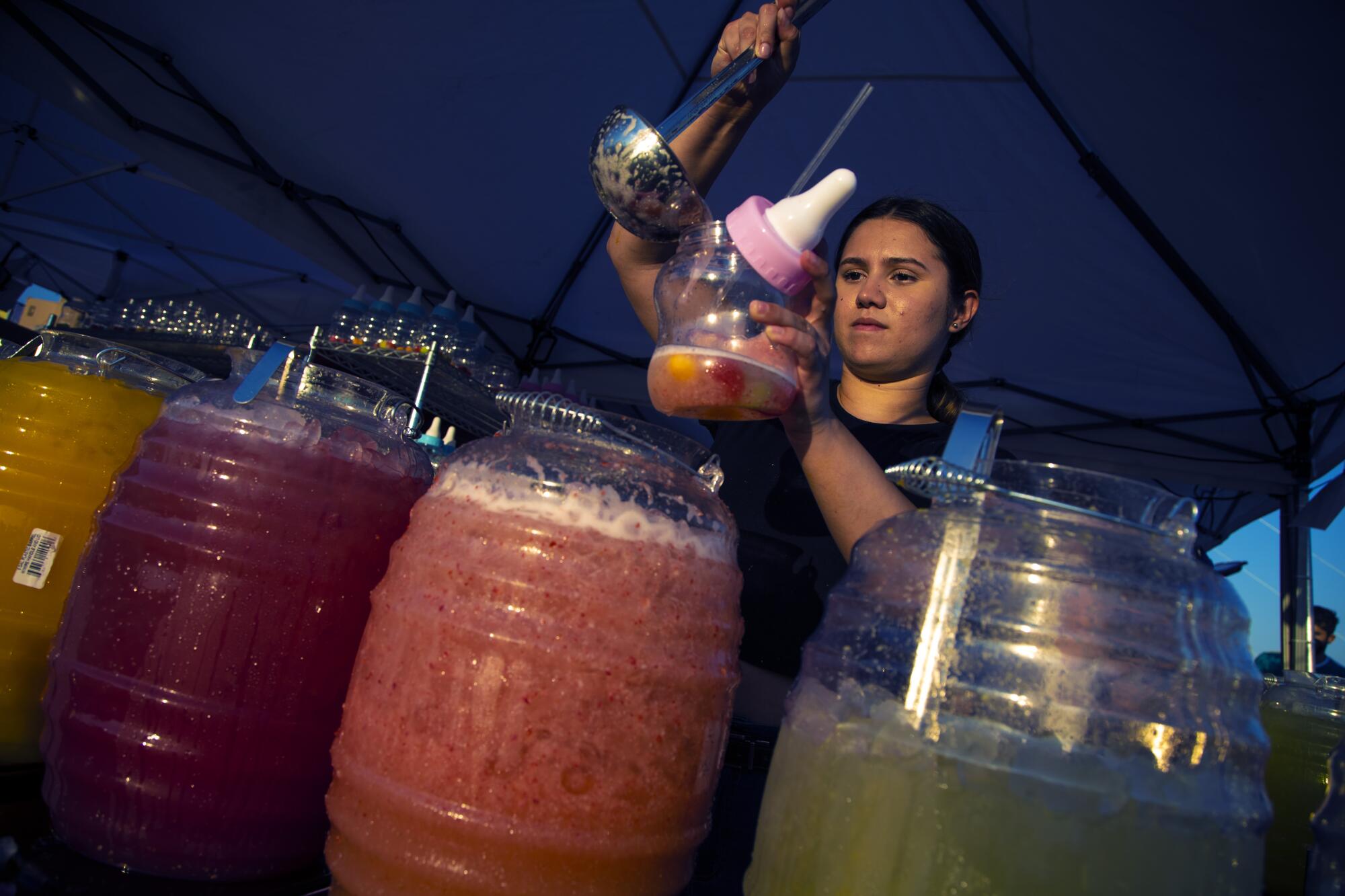
More to Read
Sign up for Essential California
The most important California stories and recommendations in your inbox every morning.
You may occasionally receive promotional content from the Los Angeles Times.










